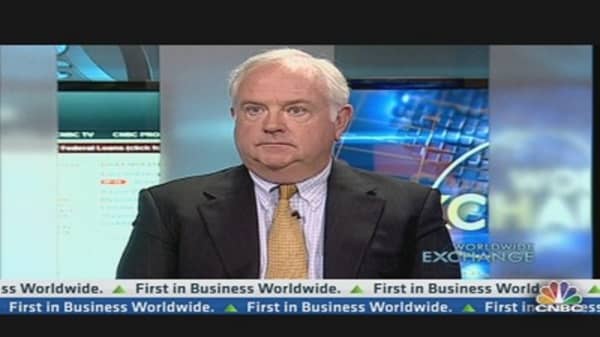The member states of the euro zone have become addicted to central bank funding and are on course for years of prolonged stagnation, similar to that seen in Japan in the 1990s, according to Nick Beecroft, Chairman and Senior Market Analyst at Saxo Capital Markets UK.
Beecroft believes European policy makers have the wrong tactics and should be concentrating on growth.
“Pretend and extend: more and more cheap money being chucked at the problem rather than looking at underlying structural problems and creating growth for the future,” he told CNBC Tuesday.
In a separate research note he said that September would be a dangerous month with potential for bad news from Greece, due to the ongoing Troika talks and a shortage of government funds.
“The euro zone has become addicted to central bank funding and is firmly on track for 'Japanization',” he said. In Japan’s case, the country suffered two decades of deflation after the bursting of a property bubble despite rate cuts and monetary stimulus by the Bank of Japan.
Beecroft believes Europe is headed down the same path with zombie banks, excessive government debt, deflationary tendencies and low private sector growth which would be fuelled by the cheap money “drug fix” from the European Central Bank .
Both Germany and France reported better than expected GDP dataon Tuesday, with Germany’s economy growing 0.3 percent and France’s economy stagnating in the second quarter. Despite this, Beecroft is certain that markets will be unmoved and policy makers should focus on microeconomic decisions rather than macro.
“The government sectors are crowding out private sector entrepreneurialism,” Beecroft said, adding that he thought the ECB was just prolonging the inevitable.
“Do you kick the can down the road, as Europe has decided to do yet again?” Beecroft said. “Or do you take the real pain now and start again with a different philosophy?”




